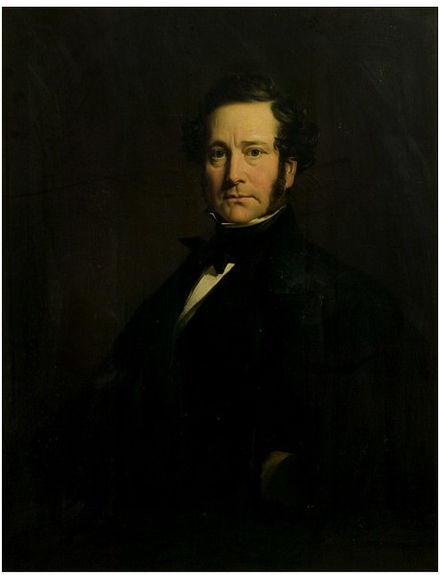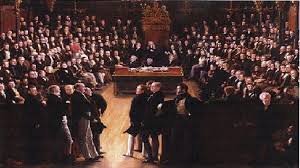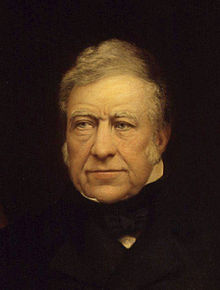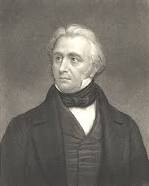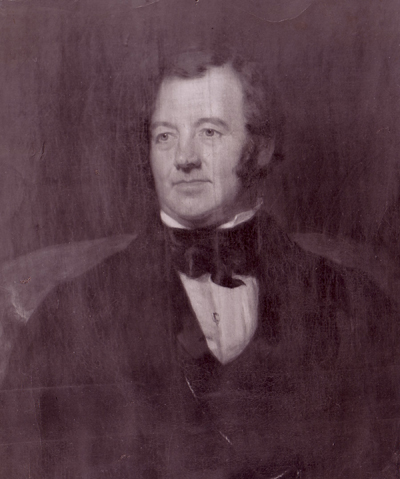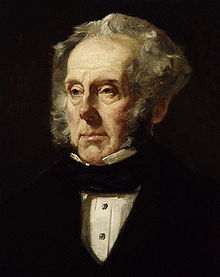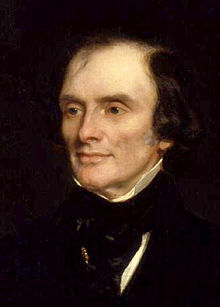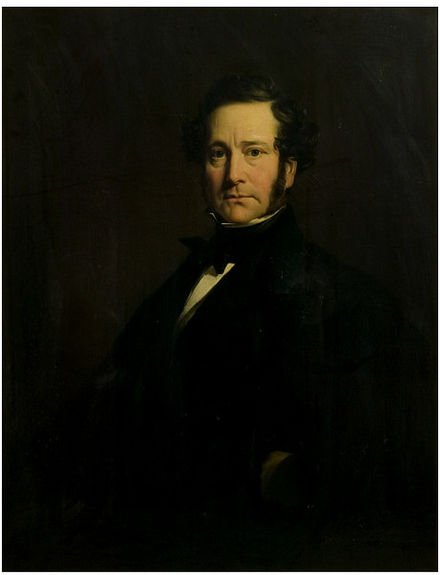CHAPTER XXI. This chapter takes us from 1851 to the start of the Crimean War in 1854. It’s mainly about Louis Kossuth who was a Hungarian émigré. Louis Kossuth (1802 -1894) was a Hungarian nobleman, lawyer, journalist, politician, statesman and Governor-President of the Kingdom of Hungary during the revolution of 1848–49. He was regarded as a liberal European statesman, and was seeking Hungarian independence from the Hapsburg Austro-Hungarian Empire. Hungary was a considerably larger country in the C19th, it lost 72% of its territory to neighbouring states in 1920.to Romania, Czechoslovakia,Serbia, Croatia, Slovakia, Austria, Poland, and Italy.
Lord Dudley Stuart who was one of Kossuth’s main parliamentary supporters was the Liberal M.P. for Marylebone. He was the youngest son of the 1st Marquess of Bute, and his mother was a member of the Coutts banking family. He married Princess Christine Bonaparte (1798–1847) in 1824, following her divorce from Count Arvid Posse, when he was twenty-one, and she was twenty-six. Her younger half-sister Princess Letizia Bonaparte (1804–1871) had married Sir Thomas Wyse three years earlier aged just sixteen.
On the 23rd of October, 1851, Kossuth landed at Southampton, and his reception there was of the most cordial kind. A crowd of his countrymen waited his arrival, cheering loudly the moment they caught sight of him. The English crowd greeted him with their usual enthusiasm as a man who, though beaten and an exile, had done good service in the cause of liberty and reform.
Mr. Cobden’s letter is dated the 10th of November, 1851 :
” My dear Walmsley,
” I got your letter at the moment I was starting for Southampton to pay my respects to Kossuth, otherwise it should have been answered earlier. I found the Hungarian leader at Winchester, in Andrew’s house, where I passed part of a couple of days with him. He is very much what I pictured him — mild, pensive, and earnest. In his features he is not unlike the lithographs, which, however, have given a romantic touch to the expression of his face, and a depth of colour to his blue eye, which does not quite fairly represent the original. He is slight and delicate in person ; and, if I must confess it, I should add, that his tout ensemble does not impress me with the idea of that power which he must undoubtedly have possessed to have been able to rise to the foremost place in a revolution, and to sway such human materials as surrounded him in the Diet and the camp. I suspect that his eloquence and moral qualities were the main source of his strength. He is undoubtedly a genius both as an orator and a writer. His speech, in English, at Andrew’s dinner, for more than an hour, was delivered with scarcely a mistake. Under all circumstances, it was one of the most marvellous performances I ever listened to. There was little attempt at rhetorical display, but it was a masterly English speech. ”
After a few weeks’ sojourn in England, Kossuth started for America. It was not till his return in the latter part of 1852, that his acquaintance with Sir Joshua began. They met at Mr. Cobden’s house. Speaking of the Hungarian patriot, Sir Joshua said :

” His striking appearance, his gentlemanly bearing, the quick sensitiveness of his nature that found such ready expression in impassioned words, the keen sense of a mission imposed upon him, all this explained to me the influence he had exercised over his countrymen. In conversation, Kossuth often reverted to Hungary. He spoke in a spirit of discouragement, yet there always lurked in his words faith in his mission. ”
There appeared in The Times of the 15th April, 1853, the announcement that the house of M. Kossuth had been searched by commissaries, consequent upon intelligence received by the Secretary of State, and that there had been discovered ” a store of arms and ammunition and materials of war, which may be the stock-in-trade of a political incendiary, but certainly form no part of the household goods of a private gentleman in pacific retirement. ” At this announcement of breach of faith towards English hospitality. Sir Joshua wrote to Kossuth He received the following reply :
“ 2l, Alpha Road, April 15th, 1853.
” Dear Sir Joshua,
” In answer to your note, I have the honour to assure you that not only the statement of The Times referring to my house having been searched, and arms and ammunition been found, is from Alpha to Omega false, but I can also add, that should it be indeed the case that the laws of England do not protect men from the most odious of preventive police measures, ‘ a domiciliary searching,’ no such discovery of arms, &c., could be made ; as, be it good or bad, it is a fact that I have no store of arms and ammunition in England, nor ever had since I am on English soil. “
” Anticipating, as I indeed do, that the time will yet come when I will have to use arms in a good cause, I follow with constant interest every new invention and every improvement in the fabrication of firearms, and neglect no opportunity to get knowledge of them, and to ascertain their practical results ; but I know what is due to the laws of your country while I live under their protection, and therefore I have never tried to have any store of arms in England, and indeed neither had nor have, whether in my house or anywhere else within the boundaries of English dominions. “
” With high and sincere regards,
” Yours respectfully,
” L. Kossuth,”
Sir Joshua brought the question before the House of Commons on the following evening.
” Had M. Kossuth’s house been searched by order of the Government ? ”
Lord Palmerston’s answer was evasive.
“ A house, not occupied by M. Kossuth, at Rotherhithe had been searched, and large quantities of gunpowder and several war-rockets had been found on the premises. “
On this, Mr. Duncombe rose and gave the following explanation of the mystery : “ The house that had been searched, and in which war implements had been found, belonged to Mr. Hales, a trader in gunpowder, who six years ago had taken a patent for the manufacture of a certain sort of rocket. “
” He had offered his invention several times to the Government, and the sale of these rockets had been going on to foreign governments for the last six years. M. Kossuth was in no way implicated in the matter. ”

The Liberals, headed by Lord Dudley Stuart, Mr. Cobden, Mr. Bright, and Sir Joshua Walmsley, took up M. Kossuth’s defence, and in his name disclaimed all underhand connection with the manufacture of war-rockets. The question was allowed to remain over, however, until Mr. Hales had stood his trial. The trial came off at the end of April. No evidence advanced could inculpate Kossuth. Lord Palmerston, in the House on the 5th of May, confirmed what the court had decided, ” that the evidence did not bear out or justify any proceedings against any other person, British or foreign. “ Once more M. Kossuth’s friends in Parliament warmly repudiated the charge so lightly made against him.
No patriot ever came into exile with cleaner hands than did M. Kossuth. He who had once had the control of the Hungarian treasury, was now nobly poor. We give the following letter, for it shows in what spirit he could accept help from the sympathisers of his country’s cause, but now he rejected it, when it came from others. The letter is dated February 3rd, 1854, when Government was still hesitating, temporising, and “ drifting into war. “ It was a moment of supreme import to the Hungarian leader, one laden with issues momentous to his country.
” Dear Sir Joshua,
“Several topics of importance induce me to trouble you with this communication. But before I begin, I beg permission to express the high gratification I felt at witnessing the late juvenile party at your house. It was a charming, cheerful view, such as can do good to a sad heart, as mine but too much is.
” Now, at once let me jump in medias res. It is not the least of the many curses attending misfortune like that of mine, that we cannot help but submit to the imperious necessity of accepting personal favours from compassionate friends, favours weighing heavily on our heart and soul, because we don’t know if we can ever reciprocate them.
” However, when the misfortune which forced us into the category of subventioned individuals is of a public nature, which ennobles our unenviable but not dishonourable position by the character of martyrdom for a sacred and virtuous cause ; and when the favours offered originate in sympathy for that cause, we think we may accept them without degrading our character, because we consider them as marks of approval of our principles and of our public conduct ; then we receive them with gratitude, we accept them as an encouragement to pursue the course which good and honourable men thus countenance.
” But when a personal benefit comes from a man hostile to the cause we suffer for, from one of the oppressors of our country, then the favour thus proffered assumes quite the degrading character of giving alms; equally offensive on the part of the donor, who takes us for base enough to be able to endure such a humiliation, as it would be infamous on our part to receive it.
” No, the cup of adversity may be yet more fully poured upon my head than it already is, the most, horrid misery may be thrown in the scale ; I might see my dear wife and children near starvation, crying out with a silent tear for a bit of bread, and my heart breaking at the sight, but not even the bread which would save them from starving would I ever take from a man who, being a friend to the enemies of my country, is my own dear country’s enemy.
“There is a distinguished and influential gentleman in England, who by former manifestations entitled me fully to take him for a friend of the cause with which ray existence is identified, and I cherished him as such with sincere gratitude, quite as much as I honoured him and honour him for his moral and intellectual qualities. I took him so much for a friend, that I approached him with unbounded confidence ; so much so, that I had no hesitation in not only receiving, but even asking from him personal favours and assistance for myself and my fellow-exiles. Now, of late this gentleman showed himself in the most decisive manner an open abettor of my country’s enemies. I have no claim or other views from him ; he is not bound to be my country’s ally, but I can certainly not play ignorance and cannot consider him a friend when he is an enemy. From such a man I cannot be base enough to hold any benefits. What in taking him for a friend I accepted, nay asked from him, weighs already too oppressively on my breast. I am just about to sell whatever I have, and at whatever price, to acquit myself of the material part of my obligations towards him for the past ; and as for the future, I certainly will never receive the slightest personal favour from one who is my country’s enemy.
” And as I have reason to suspect that that gentleman took an active and prominent part in that generous arrangement for my family which I unhesitatingly, and my soul filled with gratitude, accepted from your kind and friendly hands ; and for which I so gladly owe to you the warmest and sincerest gratitude, I therefore beg leave very pressingly to entreat you to be pleased to communicate to me the names as well as the amount of each of the contributions ; else, not knowing who they are, I would be placed in the awkward position of not knowing how far I may continue a generous assistance of sympathising friends without submitting to the insupportable degradation of accepting alms from an enemy.
” My second request is, would you kindly inform me where and how I may get a copy of the Blue Books on the Oriental question ?
” Further, it is evident that pending matters must soon come to a decision. Either there will be a speedy transaction (compromise), or a serious war between Russia on the one hand, and England and France on the other. And, in case of war, Austria can no longer temporise ; she is forced to make her choice between the Western powers and Russia. Now, in case she sides with the Western powers, England and France will become her friends and allies, and therefore our enemies ; and we can have nothing to hope from England, neither as a state, nor from Englishmen as particulars.
” That’s evident, and that’s natural. But as that issue is not at all certain yet, as the contrary is equally probable, I cannot think that the ministers of a great country like this, living blindly from the hand to the mouth, could have neglected to make up their minds about the course of policy which they intend to follow in that emergency.
” And I cannot imagine that there should be wanting private individuals in England, who, upon the condition of seeing England at war with Russia, and Austria siding with Russia, would feel inclined (as then authorised they certainly would be) to constitute a centre of active and effective agitation for the facilitation of such an assistance, which in that case private sympathy may feel inclined to afford the oppressed nationalities, then the natural allies of England.
” Hence, I beg leave to ask from your kindness, first, in what way and by whom the Government may be asked confidentially (but not publicly) whether, in the case of the above supposition, and in that emergency only, it intends to make any use, or afford any favour, to the Polish, Hungarian, or Italian nationalities ; second, whom would you think to be the fit men to act (always upon the same condition) as a committee of friends of Hungary, that I might timely enter into some consultation with them about the mode of possible immediate action, once that emergency arriving?
“These are very important matters, dear Sir Joshua, and it is their importance which will excuse me for asking your advice, equally valuable, as it is urgently demanded by pressing circumstances ; else we may be surprised by events, and found unprepared to do what then might be done.
” Please to accept the assurance of my high esteem and affectionate consideration, with which
I have the honour to be,
” Yours respectfully,
” Louis Kossuth.
In March came the Queen’s message, apprising her people that the long-pending negotiations for peace had failed, and that she was at war with the Czar. The country received the message with acclamation. It had grown weary of diplomatic reserve ; it had lost faith in the conferences at Vienna, with their fluctuating results.

